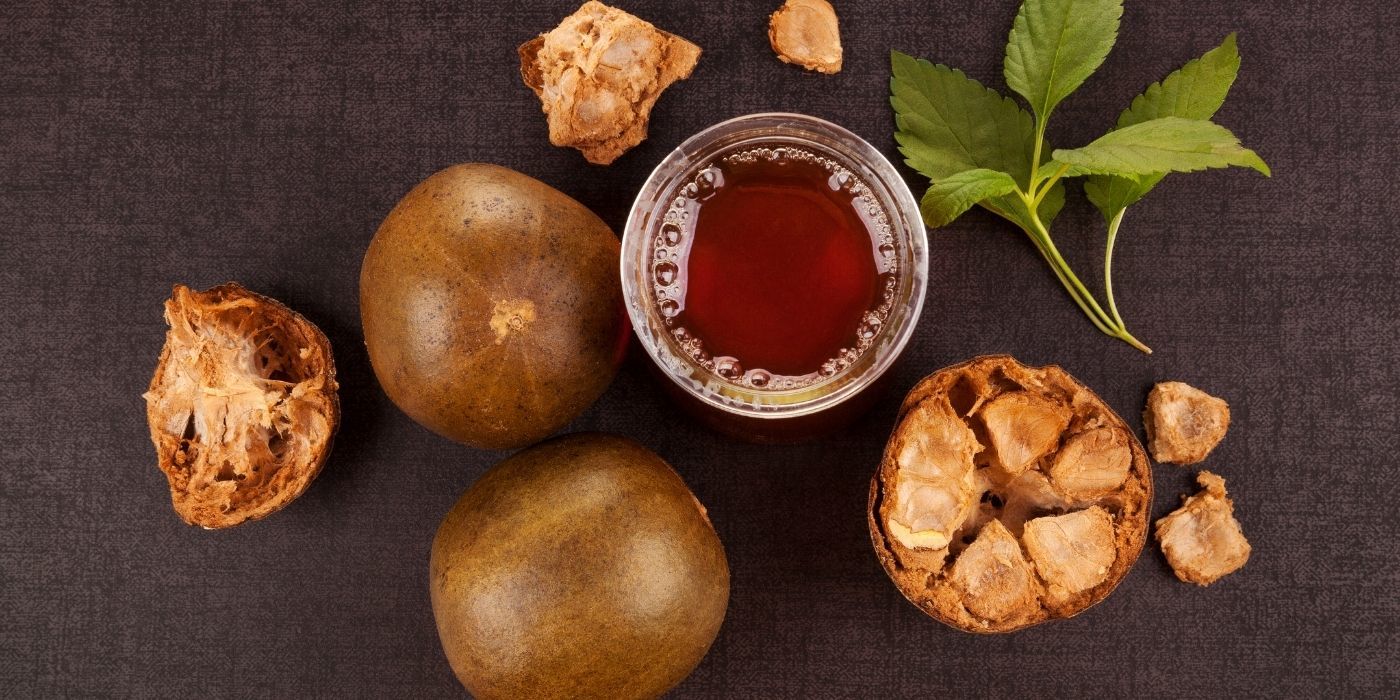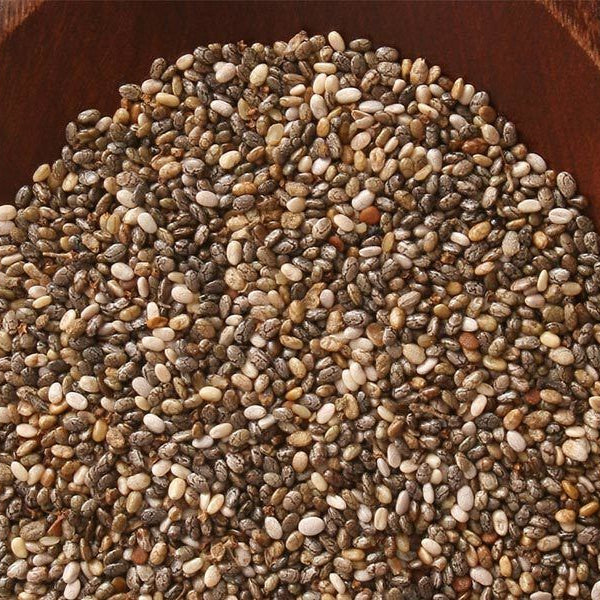
Monk Fruit: The Natural Keto Friendly Sweetener
Discover the benefits of using monk fruit as a low-carb, keto-friendly natural sweetener for all your low-carb needs. They are perfect for keto baking and for all sorts of keto recipes!
Enjoying good food and good company is one of life’s great pleasures. And there’s no denying we all love a moment of indulgence in something sweet. While sugary sweets have their disadvantages when it comes to general health and well-being. The good news is there are ways to curb those sugary cravings in healthier ways with this sugar alternative.
The monk fruit natural sweetener is the saviour. And want to know the best bit? It’s a keto-friendly sweetener. Let’s take a closer look at what makes it so good!
What is Monk Fruit?

Monk fruit, also known as Lua Han Guo or the ‘Buddha fruit’, is a small round fruit, somewhat resembling a melon, that is native to southern China. For centuries it has been used to sweeten foods and beverages as well as in Eastern medicinal practices. As of 2010, the Food and Drug Administration approved monk fruit for its use as a sweetening agent.
It's created by carefully removing the seeds and skin of the fruit and then crushing the fruit to collect its juices. Unlike most fruits, the natural sugars in monk fruit are not responsible for its sweetness. Instead, the intense sweetness comes from the antioxidant-rich compound called ‘mogrosides’.
Here’s the best bit… While monk fruit sweetener can be 100-250 times sweeter than regular sugar, it contains no calories and no carbs making it a great keto sugar replacement if you are on a ketogenic diet. And what’s more, it’s known to have no nasty side effects. Fantastic right!
Really, we're more interested in showing you the best natural sweeteners out there although artificial sweeteners are another option.
What are the other benefits of Monk Fruit Sweeteners?
This little miracle sweetener also brings with it a long list of other health benefits:
- Antioxidant effects: Mogroside extracts are known to contain antioxidant and anti-inflammatory properties which may help prevent damage to DNA. Some studies also show that it may help with the prevention of cancer.
- Anti-inflammatory and anti-fibrotic properties: The anti-inflammatory properties of monk fruit may aid in the prevention of many diseases, such as cancer, arthritis, and digestive problems. And unlike anti-inflammatory drugs that come with a list of unpleasant side effects, monk fruit provides a safer alternative. Further, the anti-fibrotic properties of the mogroside compounds may help control inflammation and potential tissue scarring.
- Anti-diabetic properties: Overconsumption of sugar is one of the most destructive habits for the human body. Since monk fruit sweetener has zero calories and carbs. It does not raise blood sugar levels, making it a great option for those with diabetes.
- Safe for children: With monk fruit, you can add sweetness to your children’s diet without worrying about their calorie or sugar intake, or about the risk of cavities.
- Safe for pregnant and breastfeeding women: According to research monk fruit sweetener is safe for pregnant and breastfeeding women.
- May improve hormonal balance, sleep, and symptoms of depression: Artificial sugars impair blood flow, thereby impact hormonal balance. By using monk fruit as an alternative sweetener, you can support the body’s hormonal balance. In turn, you reduce your chances of depression and may enjoy improved sleep.
- Helps fight infection: Due to its anti-infection properties that inhibit the growth of unwanted bacteria. Monk fruit is sometimes used to help prevent or treat a sore throat and cough. It also provides helpful anti-microbial properties that may improve immune function by maintaining the correct bacterial balance in the gut.
- Promotes heart health: The mogroside compounds in monk fruit contain properties that may help prevent the buildup of cholesterol in the arteries and blood vessels, making it beneficial for heart health.
- May help with weight loss and management: As we’ve already discovered, monk fruit sweeteners contain zero calories and carbs. That makes it a good option for people watching their weight. As well as making it the best keto sweetener for those on a ketogenic diet. As well as making it the best keto sweetener for those on a keto diet.
How Can I Include Monk Fruit Sweeteners in My Diet?
You can use monk fruit sweeteners as you would, regular table sugar - stirring some in your coffee or tea, or to sweeten whipped cream and desserts. . You can also get baking with this low carb sweetener. However, it can be tricky – different forms of this sweetener work best in different desserts. Confused? Well, let’s take a look.

- Powdered - monk fruit powder has the right texture for making sugar-free and dairy-free buttercream frosting.
- Liquid - monk fruit juice sweetener works best in desserts such as dairy-free mousse, and baked goods that already call for liquid sweeteners.
- Granulated - sweeteners can be used to replace regular sugar in a recipe, making it an option for all baked goods, plus any other foods and beverages you usually use a spoonful of sugar in.
While you’re playing around with adding monk fruit sweeteners to your baking kit, a word of advice: spend some time experimenting and figuring out just how much sweetener you need to use before the baked goods become overly sweet!
Do any of our mixes include monk fruit?
Yes, the following 4 products contain just the right amount. Protein Muffin Mix, Low Carb Cookie Mix, Protein Cookie Mix & Protein Banana Bread Mix - Are all Low Carb, GF, Soy Free with No Added Sugar.
Monk Fruit vs Other Natural Sweeteners
Because there are so many natural sweeteners to choose from, it can be confusing to determine which is right for you.
As a note, monk fruit extract is often mixed with other sweeteners. To enjoy these and other potential benefits, it is important to carefully check the label before purchasing and adding it to your diet to ensure you’re enjoying pure monk fruit sweetener.
Well, worry not – we’re here to help make things easy. Let’s take a quick look at how it compares to some other popular natural sweeteners.
- Monk fruit vs maple syrup or honey: A tablespoon of maple syrup contains over 50 calories and 13 grams of carbs, while honey – another natural sweetener – contains around 55 calories. In comparison monk fruit ranks in at zero calories and a zero glycemic index.
- Monk fruit vs erythritol: Like monk fruit, erythritol has a zero glycemic index, which means it won’t affect your blood sugar levels. Most people find monk fruit to be a lot sweeter than erythritol. Although erythritol does contain some calories, it is also considered to be a keto-friendly natural sweetener for those on a ketogenic diet.
- Monk fruit vs xylitol: Naturally derived from sugar-alcohol found in a variety of plant sources, xylitol, unlike monk fruit, is not completely free of calories. Therefore, it is not considered to be one of the best keto-friendly sweeteners, though it does offer a low caloric profile at 2.4 calories.
Frequently Asked Questions
How much can I use, in my daily diet?
While monk fruit alone contains no calories and carbs, its high level of sweetness means it’s normally mixed with other sweeteners, such as erythritol. Therefore, daily intake recommendations and calorie and carbs counts may vary depending on the product you purchase.
As a result, we strongly advise that you take a careful look at packaging labels before purchasing any commercial sweeteners, to ensure they meet your dietary needs.
Where Can I Buy?
While monk fruit itself isn’t easy to find – it’s difficult to grow and very expensive to both import and buy – you can buy monk fruit sweeteners from just about any supermarket or health foods store. You can also purchase it online and may come across it in its dry fruit form in some Chinese supermarkets.
Most supermarket blends tend to be 99% erythritol and 1% monk fruit, it may be more cost-effective to just purchase pure erythritol. Whilst it will be marginally less sweet, it will perform the same in baking and offer similar health benefits.
Nutritional information
Although the monk fruit extract is 150-200 times sweeter than sugar, similar to erythritol, it contains no carbs, no sodium and no fats. This means that it also has no calories too, making it a popular sugar-free alternative for baking.
We’re Here for You...
In the meantime, if you have any questions regarding sweeteners and how to include them in your diet – or about any of PBCo’s other products or ingredients. Simply contact us via our online form, call us on 02 9558 3300, or email mailto:hello@lovepbco.com, and we’ll get you in touch with the relevant person.
We can’t wait to help guide and support you on your health journey. Don't forget about monk fruit sweeteners when you're having those sugar cravings.
Phone: 02 9558 3300
Email: hello@lovepbco.com
Web: lovepbco.com






